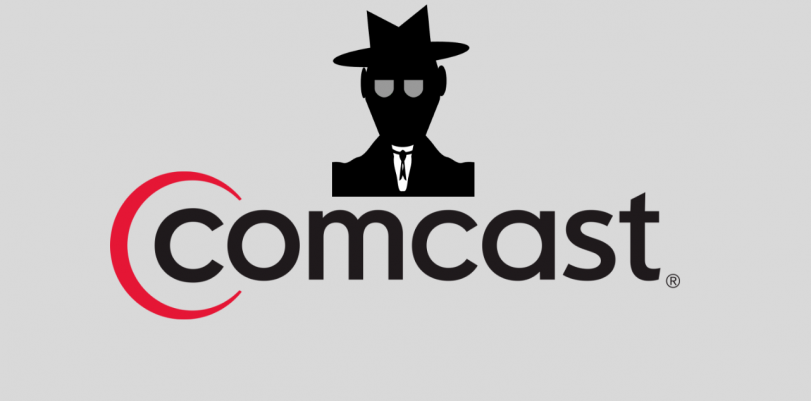As you may have heard, the recent vote of the United States Senate brought a Bill that, if approved, allows your Internet Service Provider (ISP) to sell your browsing history and other personal data to third parties, and they don’t even need your approval to do that anymore. This means that everyone who appreciates their online privacy has to find some way to fight back and keep it for themselves.
Otherwise, all of your personal data will be sold to advertisers and other third parties.
Many people have been doing that for years now, and thanks to them, we have several tricks up our sleeve that can help us stay truly anonymous while surfing the web. So, here are three relatively simple things you can do in order to keep your privacy private.
Install HTTPS Everywhere
One of the easiest things you can do to ensure some level of privacy for yourself is to install the Electronic Frontier Foundation’s browser extension called HTTPS Everywhere. This little extension forces all websites to connect to your browser through SSL/TLS encryption.
That means a certain level of online privacy has already been acquired and the content you’re viewing will be protected from ISP collectors. Of course, this is not the perfect solution, mostly because this extension won’t work on websites that don’t support the protocol, and thus the HTTPS will not force the connection through the encryption.
The extension itself starts working as soon as you install it. Another downside of HTTPS is that it doesn’t hide ALL of the information from ISP. They will still be able to see which sites you visit. Even so, they won’t be able to tell what you did on those websites, nor the specifics of your visit. For example, if you go to YouTube, the ISP will know that you went there, however, they won’t be able to tell what you watched.
HTTPS Everywhere is now available for Google Chrome, Opera and Mozilla Firefox, both desktop and Android versions.
Buy a Virtual Private Network (VPN)
If you are in need of even more privacy than what HTTPS can provide you with, then this will be a much better option for you. A Virtual Private Network, or VPN for short, is like a tunnel between you and the Internet. A tunnel that is encrypted, and doesn’t allow third parties or ISP to see what you are doing.
They will be able to see that you’re using VPN, but other than that, it’s a complete mystery to them. Once you pick and configure a VPN, you should set it to start up automatically and all of your web traffic will go through there.
The most important step here is to carefully choose your VPN provider. You’ll want one that has a decent speed, allows you to function normally and most important of all collects and stores a minimum amount of data. The downside here is that you have to pay for it. Some of the VPN providers do offer free service, but those free packages often allow ads and record your data themselves.
The cost of the paid packages is around $40 – $60 per year, but in exchange, you get complete privacy and freedom to be free while surfing the Internet. Since there are many VPN providers, you should check them out, compare the features that they offer and then make your choice. However, I personally recommend TorGuard.
One more thing, while checking out VPN’s, you should pay attention to security features that concern DNS leaks, which brings us to the third and final option.
Here are the best VPNs:
 |
 |
|
|---|---|---|
| Multi-platform Compatible | ||
| 256-AES Encryption | ||
| PRICE | $5 for 1 month with code "best10VPN" | $6.95 a month |
| Website Rating | 9.9 | 8.8 |
| 24/7 Live Chat | ||
| Residential / Dedicated IP for permanent streaming access | ||
| Has Mobile App + PC / Mac Support | ||
| Stealth VPN / Advanced Obfuscation techniques | ||
| Visit VPN Provider | Visit TorGuard | Visit PIA |
Adjustment of your DNS
The DNS, otherwise known as the Domain Name System, is how your computer knows which website you want it to connect to. It’s how your computer translates a website name into a numerical Internet Protocol address.
When browsing the internet, your PC has to use a DNS, and in most cases, it’s your ISP’s DNS. That means that all of your web connection requests go through ISP, and that is one of the ways that they find out what you did online. VPN’s usually provide you with protection from DNS leaks, and that’s one of their features that should come automatically.
Still, just to be sure that there is no leak, it’s not a bad idea to set your PC to use a third-party DNS, which can be achieved through providers such as OpenDNS. There are many tutorials about how to do this that can be found online, so there won’t be a specific instruction given here.
That’s it
You now know some of the easiest, but still pretty good, ways to protect your data and privacy from anyone who might want to take a sneak peek. Once you’ve finished setting up, you can consult DNS Leak Tests and IPLEAK.net to try and make sure that you’re all covered when it comes to leaking data.
